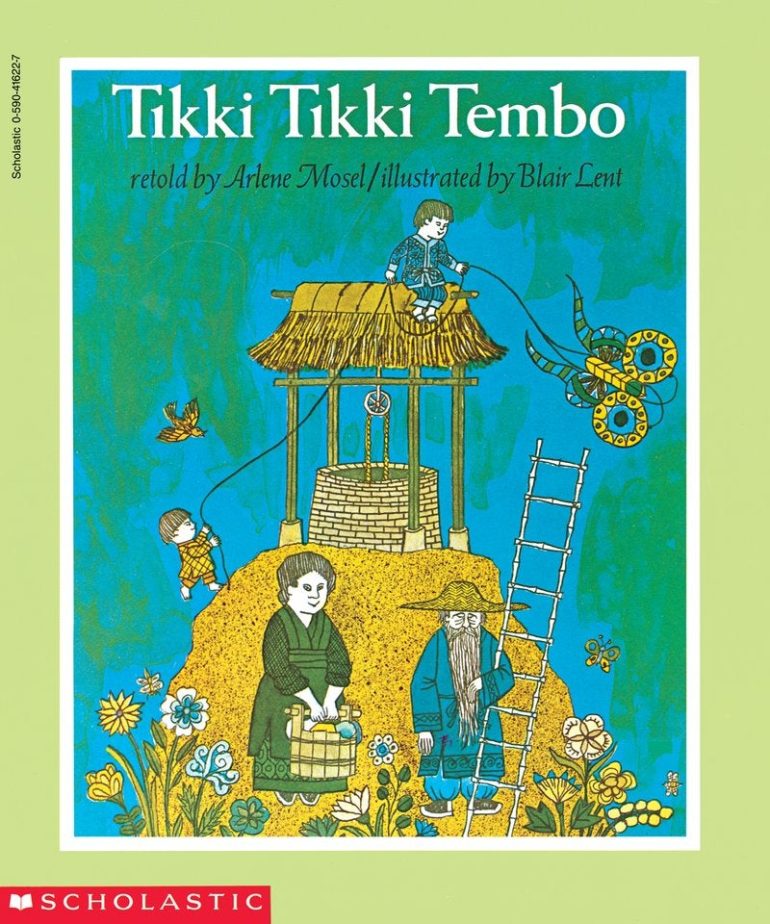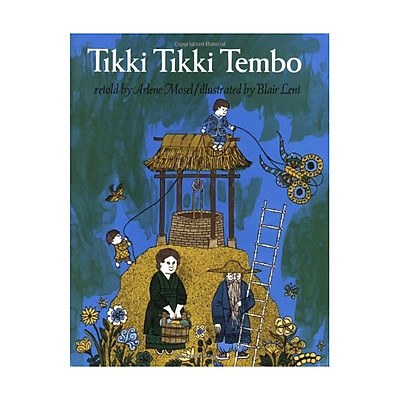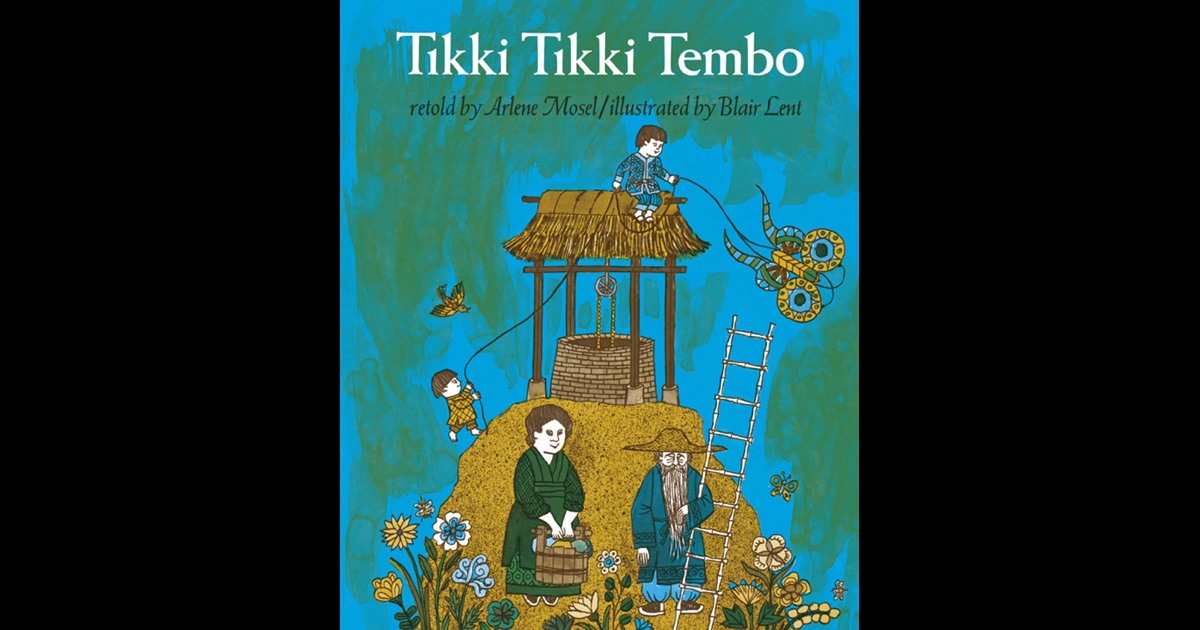

Īn early instance of Chinese setting is a 1941 audio recording titled "Long-Name-No-Can-Say", adapted and narrated by Paul Wing. A book published in 1968 (the same year as Tikki Tikki Tembo) reprinted the 1924 version of the story. There are some non-Japanese elements in this version. After falling into the well, the title character "never grew up to be a fine Japanese man." It concludes that "And now in old Japan," boys are given tiny short names such as "Su", "Foy", "Wang", or "Sing". "Tiki-tiki-tembo-no sa rembo-Hari bari broohski-Peri pen do-Hiki pon pom-Nichi no miano-Dom bori ko" Īnd his neglected sibling "Choi". In 1924, the National Association of Junior Chautauquas published a book that contained a story by an anonymous author entitled "Tiki-Tiki-Tembo" the story concerned a boy "in old Japan" named: įirst part of "Tiki-Tiki-Tembo", a story published in 1924 It has been criticized for "reinforc the stereotype that Asian names sound like nonsense syllables", especially as the name of the title character is nothing like actual Chinese. The 2009 audio book version of the story received a Parents' Choice Foundation rating of "Approved". According to the publisher, over one million copies of the book had been sold by 2013. In a 2008 online poll of "Top 100 Picture Books" by School Library Journal, the book ranked 35th in a similar 2012 poll, the book ranked 89th. Based on a 2007 online poll, the National Education Association listed the book as one of its "Teachers' Top 100 Books for Children". In a 1999–2000 National Education Association online survey of children, the book was one of the "Kids' Top 100 Books". In 1997, The New York Times selected it as one of the 59 children's books of the previous 50 years. The Kirkus Review found the illustrations to be "a skillful counterpoint of diminutive detail and spacious landscape and a fine setting for a sprightly folktale." The book won a 1968 Boston Globe–Horn Book Award in the Picture Book category. The book received accolades upon publication. The end of the story says that this is why the Chinese have short names. They get Tikki Tikki Tembo-no Sa Rembo-chari Bari Ruchi-pip Peri Pembo from the well, but because of the long time he was in the well, it takes longer for him to recover. After Chang breathlessly repeats his brother's predicament the Old Man goes with Chang to save his brother from the well. Further, when Chang tries to wake him up, the Old Man with the Ladder-annoyed-tries to fall back asleep. Initially, the old man does not respond because he is asleep. Chang goes to the Old Man with the Ladder. He tries repeatedly until finally his mother tells Chang to get the Old Man with the Ladder.

His mother insists that he repeat the name-but with respect. However, because Chang is out of breath from running he sputters and then mispronounces the name. Chang runs to their mother and tries to tell her that "Tikki Tikki Tembo-no Sa Rembo-chari Bari Ruchi-pip Peri Pembo has fallen into the well." At first she cannot hear him so he says it again. Some time later, the boys are again playing near the well. Chang is rescued and then recovers quickly. Their mother tells him to get the Old Man with the Ladder. Chang falls in the well and his older brother runs to their mother and tells her Chang has fallen down the well.


A boy named Tikki Tikki Tembo-no Sa Rembo-chari Bari Ruchi-pip Peri Pembo ("The Most Wonderful Thing in the Whole Wide World") and his little brother Chang ("Little or Nothing") are playing very close to a well at their house that their mother has warned them to avoid. Tikki Tikki Tembo is set in ancient China and invents an ancient Chinese custom whereby parents honor their first-born sons with long, elaborate names that everyone is obliged to say completely – no nicknames, no shortening of any kind – while second-born sons are typically given short, unimportant names. It is a sort of origin myth about why Chinese names are so short today. The book tells the story of a Chinese boy with a long name who falls into a well. Tikki Tikki Tembo is a 1968 picture book written by Arlene Mosel and illustrated by Blair Lent.


 0 kommentar(er)
0 kommentar(er)
